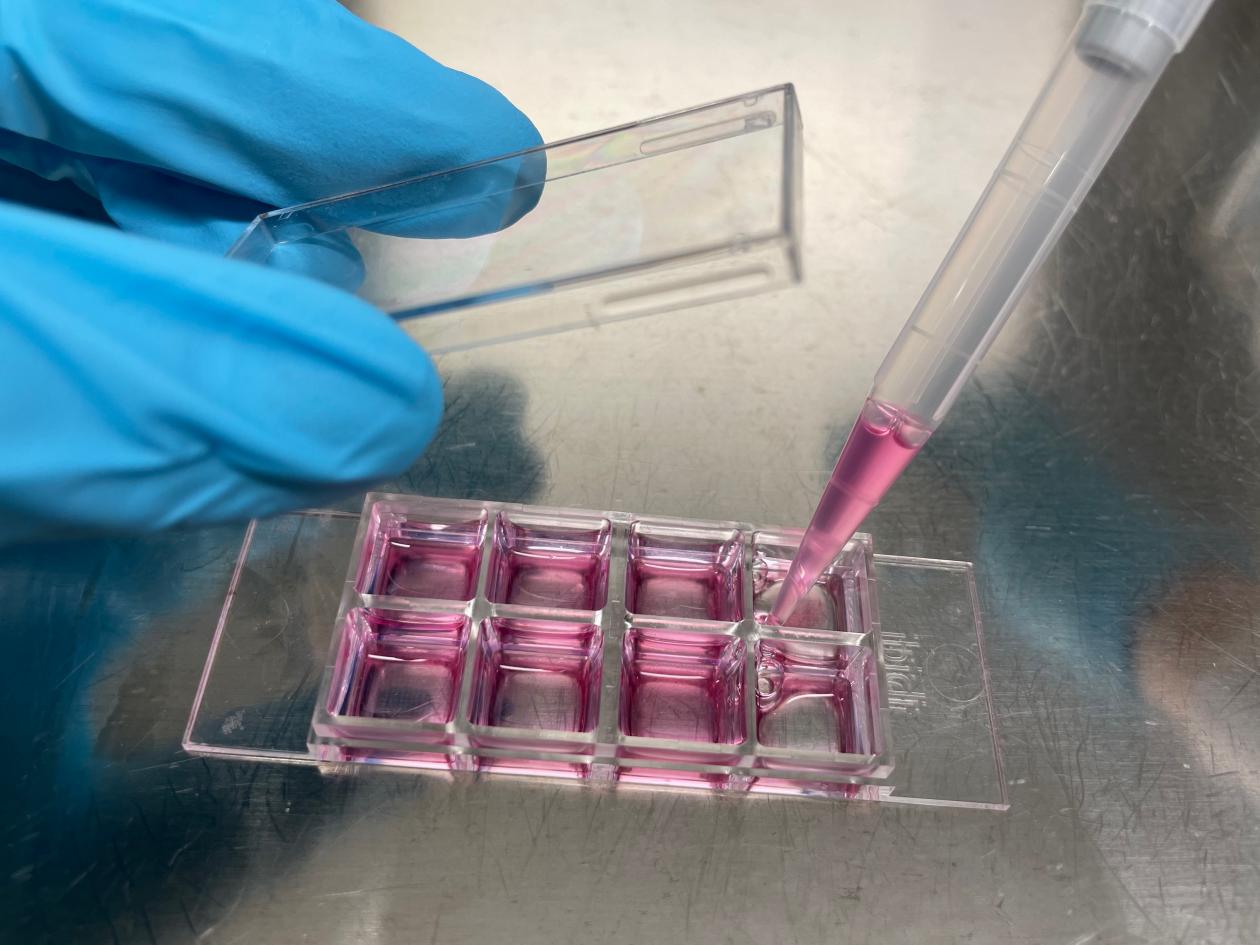Placing cells precisely with photocrosslinkers
In order to be able to examine the effect of active substances on cells more precisely, the Laser Zentrum Hannover e.V. (LZH) is working on a method to grow cells exclusively at selected sites on a cell culture surface. To this end, the LZH scientists, together with ibidi GmbH, Gräfelfing, and Ella Biotech GmbH, Fürstenfeldbruck, plan to use novel photocrosslinkers. These can bind to molecules, which in turn are able to bind to cells.
Exposure mask selectively activates photocrosslinkers
At first, the partners want to create a library of photocrosslinkers and the functional molecules, that will be binding sites for cells. Using localized UV radiation of wavelength 365 nm, the researchers want to activate the photocrosslinkers in certain areas. This allows them to bind to the otherwise cell-repellent surface. In doing so, they will use an exposure mask to determine the areas to which the crosslinkers, and thus the cells, are to adhere. The mask is to be generated by a digital micromirror device (DMD). This consists of many tiltable, individually controllable micromirrors. These can assume two states, allowing light to reach the surface and activate the photocrosslinkers or not.
Aptamers bind specific cells
In the next step, molecules are applied that bond to the locally applied photocrosslinkers. Due to three-dimensional structure of the so-called aptamers, they form specific binding sites for target cells. Depending on these binding sites, different cell types are able to bind to them. Cells can thus be arranged on the surface according to a predefined pattern. In the future, this will enable researchers to determine exactly at which site certain cells settle onto the surface. This can, for example, simplify investigations of cellular interactions or the influence of chemical substances on certain cell types.
As part of the project, the partners want to establish the method and create a library of usable crosslinkers and aptamers. The LZH also wants to develop a portable demonstrator that combines microscopy stage and imagesetter.
About Mako-Zell
The joint project Mako-Zell is funded by the German Federal Ministry of Education and Research as part of the KMU-innovativ materials research funding initiative. In addition to LZH, the companies ibidi GmbH and Ella Biotech GmbH are involved.

